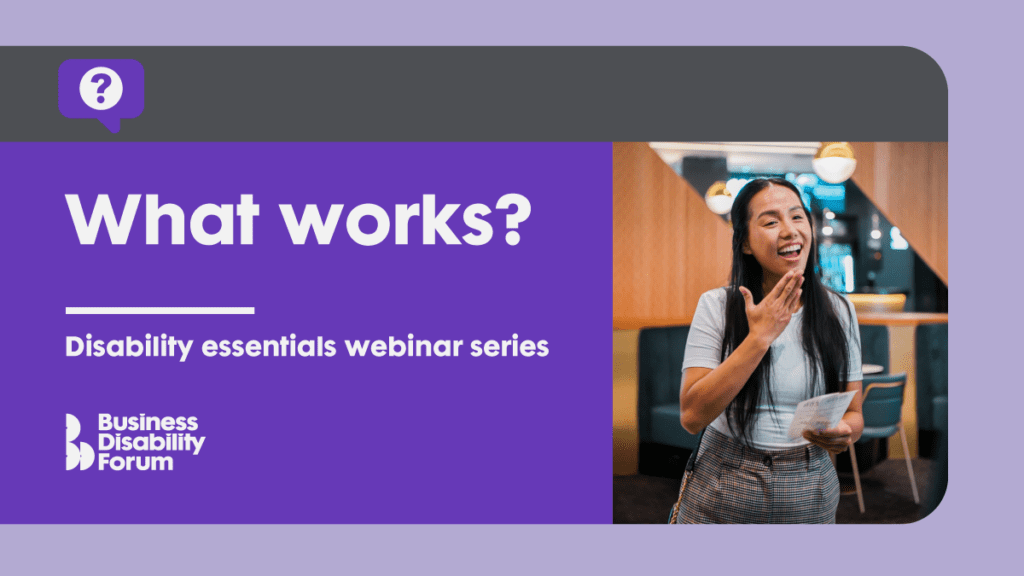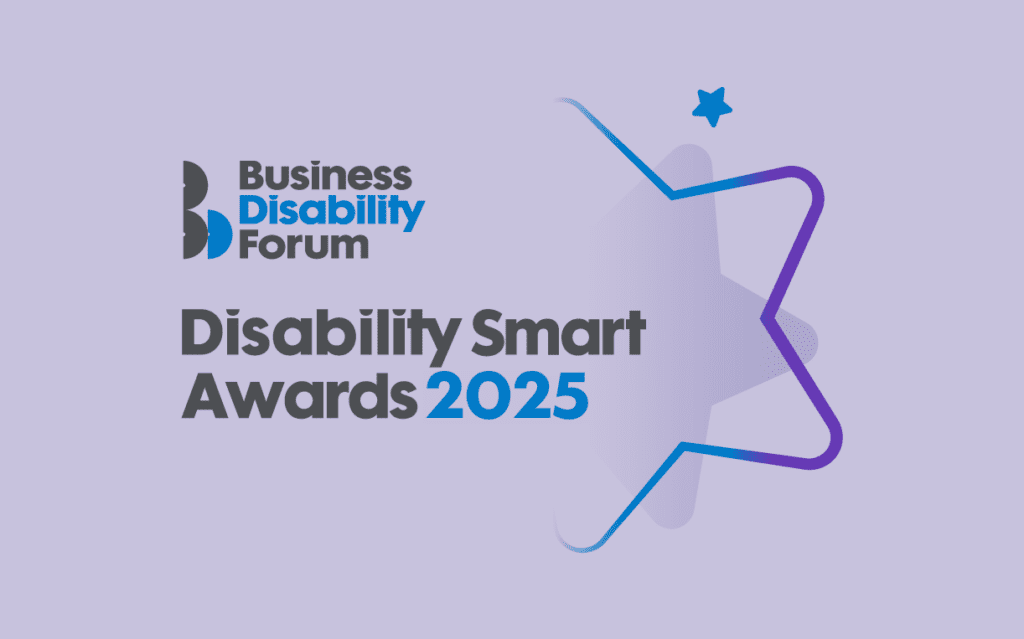The Great Big Workplace Adjustments Survey 2023: Intersectional experiences at work
Find out what disabled employees told us about how their experiences of work had been affected by other characteristics.
As part of The Great Big Workplace Adjustments Survey 2023, sponsored and supported by Microlink, we asked employees how their experiences of work had been affected by different characteristics as well as disability, such as age, race, gender, and sexual orientation.
This is what is often called intersectionality: the unique experience of people with several different characteristics that affect their experiences of work, often in overlapping ways. These characteristics often have a strong influence on a person’s sense of identity, being part of what makes up someone’s sense of themselves and how the rest of the world reacts to them.
Downloads
The Great Big Workplace Adjustments Survey – Intersectional experiences at work (Accessible PDF)
The Great Big Workplace Adjustments Survey – Intersectional experiences at work (Word)
The research
We asked employees with a disability or long-term conditions if they felt the following ‘characteristics’ prevented them from getting the support and adjustments they need in their workplace:
• Their age.
• Their religion, faith, or belief (including philosophical or political beliefs).
• Their gender or gender identity.
• Their sexual orientation.
• Their race or ethnic group.
Key findings
Disabled people’s experiences are affected by other aspects of their identities, or other ‘characteristics’.
The most prominent finding from our research is that people don’t define themselves as having a set of different characteristics. They define themselves as people with a single identity that crosses over these. For example: a person is not “disabled and a woman and queer”, but “a queer disabled woman”, with experiences unique to them.
This is important in terms of building inclusive organisations because, as one employee said, every one of a person’s characteristics might impact their experiences of work and seeking adjustments: “Age: people talking about how young I am while I am in the bathroom. Religion: people thinking I am overly sensitive because I flagged that I don’t think it is appropriate to laugh about people with a particular belief. [Not being] confident: coming across confidently is almost a required behaviour. Disability: I can’t work as long hours as is wanted, I need breaks and that can be seen as disruptive.”
Recommendations for employers
1. Revise your workforce data collection methodologies to rely less on separating and quantifying different diversity characteristics. Instead, focus more on the real-world experiences of disabled employees.
2. Educate your whole workforce on what constitutes victimisation and perceptive discrimination. Ensure protection against experiencing these types of discrimination is both explained and not tolerated in your policies.
3. Equip every employee in your workforce to question unfair treatment, banter, and unkind comments and behaviours. Challenging poor attitudes requires efforts from the whole workforce, not just leaders and managers.
4. Undertake a part time job and worker review. Our findings suggest that there is often a stigma associated with working part-time. Identify how many employees have requested to decrease their hours or work part time, as well as their reasons for this. Then identify which jobs have been defined as being full time only and review whether this decision is still appropriate.
If you require this content in a different format, contact enquiries@businessdisabilityforum.org.uk.


